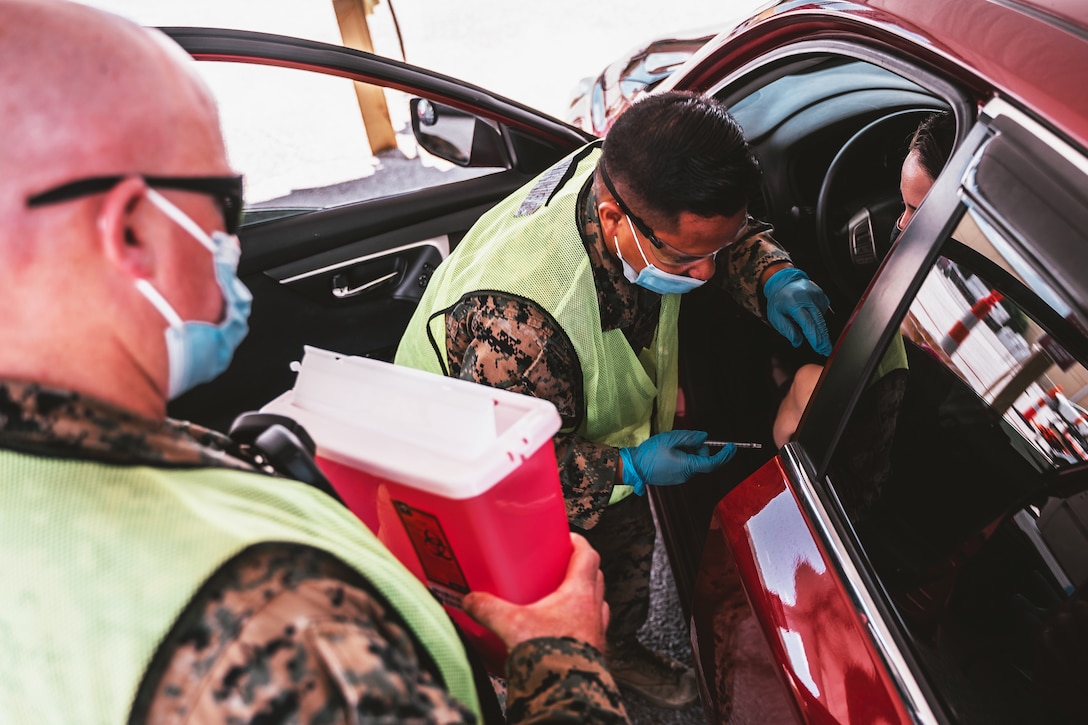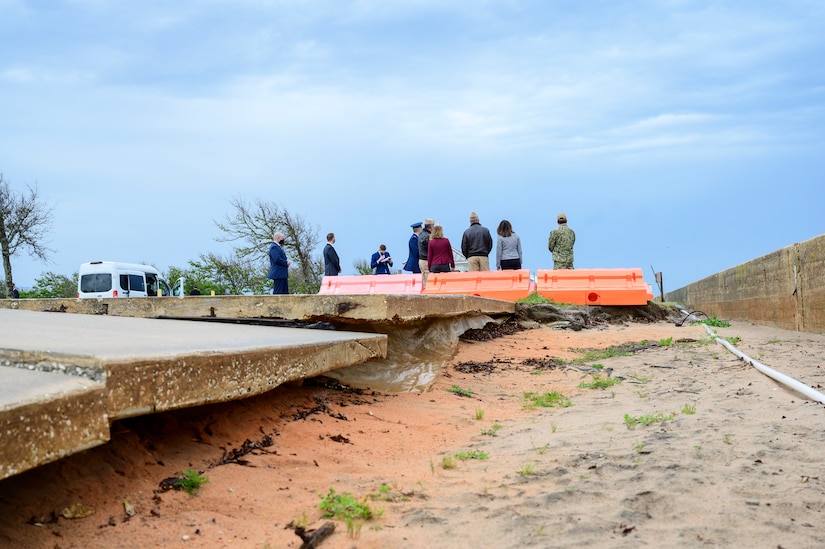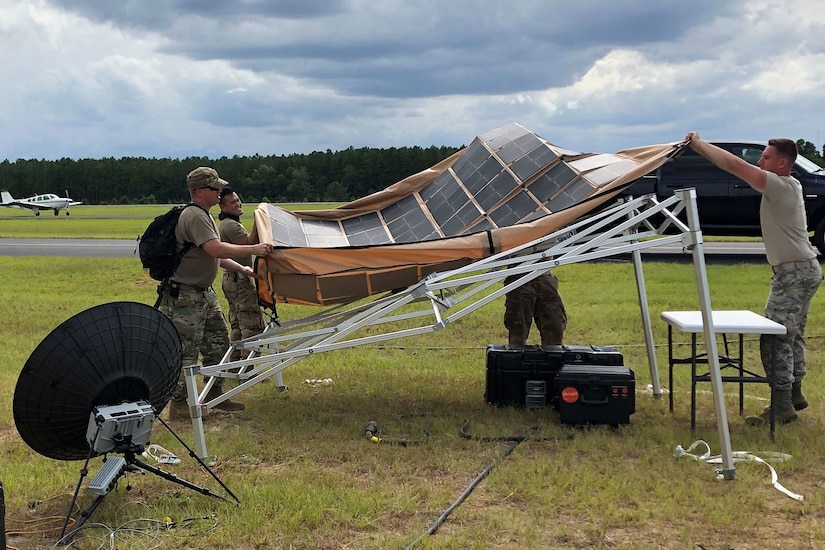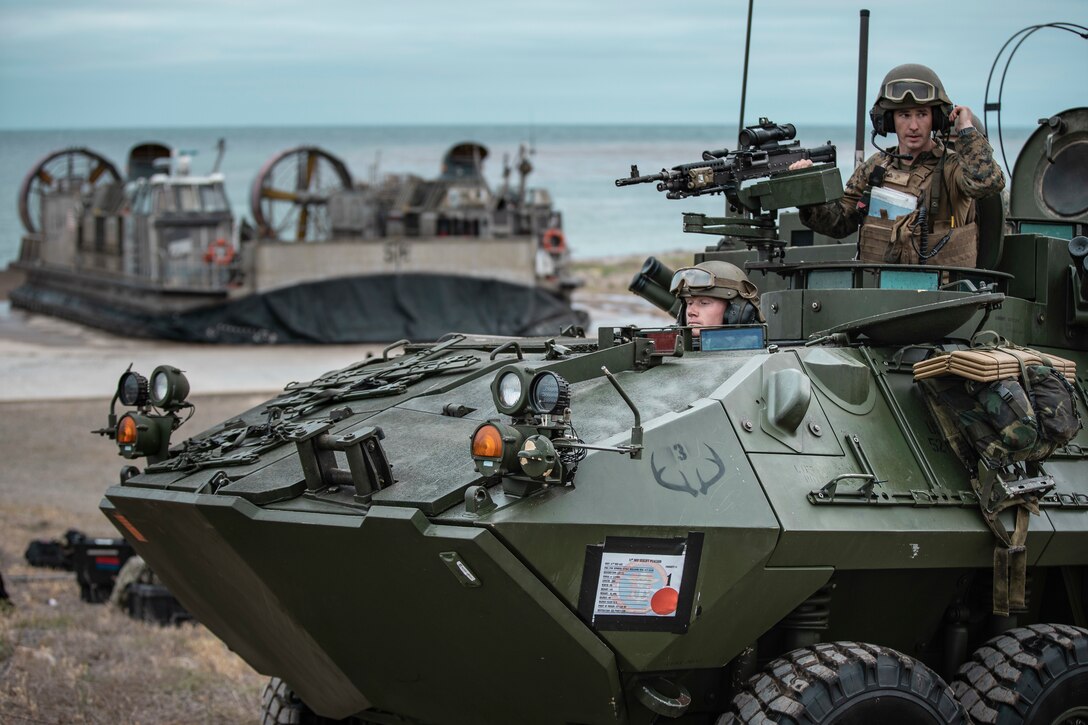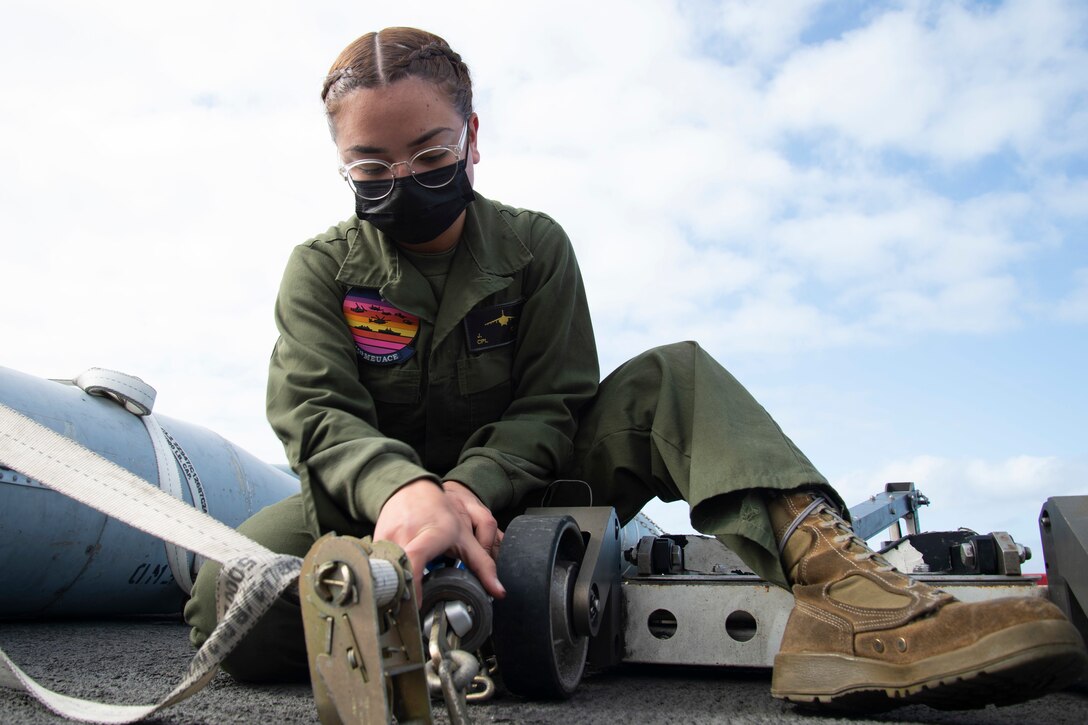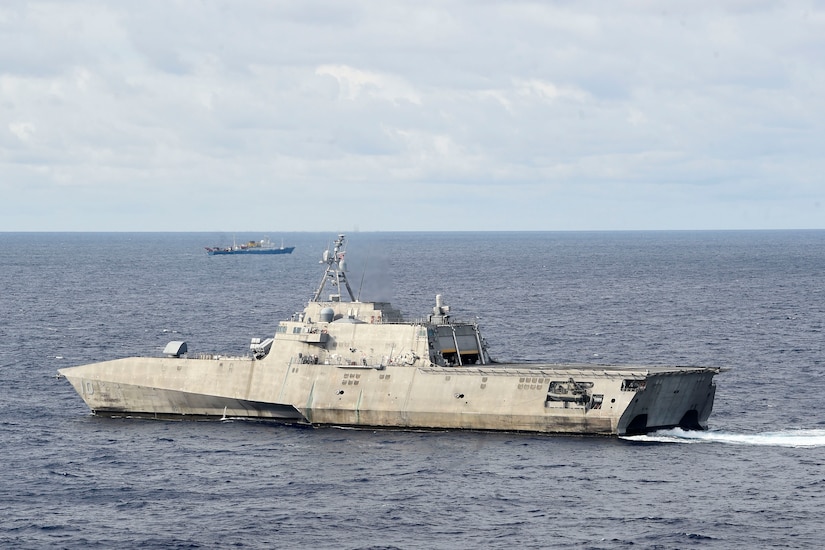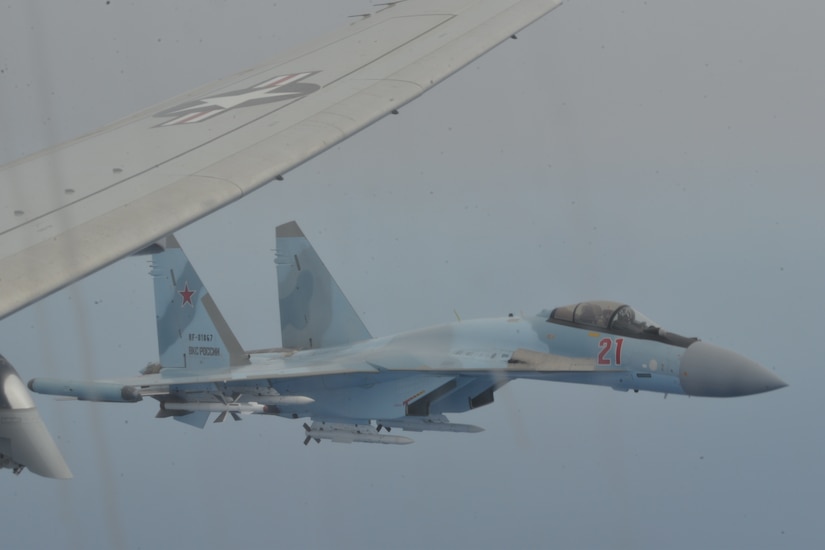Pentagon Press Secretary John F. Kirby
PRESS SECRETARY JOHN F. KIRBY: Hi, everybody. They
tell me I only have about 25 minutes so we'll try to keep it short. I
don't have an opening statement so looks like -- Bob, you're on the
line.
Q: Yes, thanks, John. I have a question for you about these reports
of an Iranian ship catching fire and sinking in the Gulf of Oman.
Wondering if you have anything on that and also whether you have any
observation about the significance of such a -- a loss to the Iranian
Navy?
SEC. KIRBY: I mean, I -- we -- have the same sort of public reports
that you've -- you've got there, Bob, and I obviously -- this is -- it's
really more of a matter for the Iranian Navy to -- to speak to. We are
aware of the loss of one of their ships by fire. Our understanding is
that this was a replenishment ship in the Iranian state Navy.
As for the impact on their fleet, again, I -- you know, that's -- we
wouldn't be in a position to -- to be able to speak to that with any
great specificity. I think, you know, that's something more for the
Iranians to speak to.
Q: I -- thank you.
SEC. KIRBY: Joe?
Q: Two quick things. First, Sudan has announced today that its
government is going to -- establishing a Russian naval base
(inaudible). I was wondering if you could -- if you have anything to
comment on that?
SEC. KIRBY: I don't know -- I'll have to take the question. I -- I
don't have -- I don't have context on that right now so I'd have to -- I
can't -- certainly can't confirm that report and wouldn't want to
comment until we could.
So I'd certainly encourage you to reach out to the State Department.
They might have a -- a view on this. I'm -- I -- but for here, at --
at DOD, I'm going to have to take the question and get back to you.
Q: Quick thing, another -- in regards to Minister Gantz visit
tomorrow to the Pentagon, do you have anything to share with us? What
are the topics that they are -- that both secretaries are going --
Minister Gantz and Secretary Austin are going to discuss? Is the Iron
Dome part of the discussions?
SEC. KIRBY: Without getting ahead of the agenda, I mean, we'll --
we'll -- obviously, we'll -- you know, we'll be able to provide a
readout of the meeting, of course, when it -- when it's over, and I
don't want to get ahead of a conversation that hasn't happened yet.
I would -- so -- a couple of big thoughts, though -- clearly, they
will be talking about regional security issues, I have no doubt that
they will discuss recent Israeli operations in Gaza, and I have no doubt
that they will talk about Iran's continued activity in the region.
More specifically, I just -- I think -- let -- let's wait until the
conversation happens to -- to get into more detail.
The other thing I'd add is that, you know, this -- this is the
continuation of a long series of discussions and conversations that the
Secretary's had with Minister Gantz -- many over the phone, of course we
met with him in person in Israel just a few weeks ago -- and he
reciprocated the invitation to the Minister to come to the United States
and -- and now he is.
And so it's an ongoing conversation between these two leaders, who
know each other quite well, and there's a -- a whole range of things
that -- that I -- I expect they will be talking about.
Q: So -- so the visit was scheduled during the operation in Gaza? That's around this timeframe.
SEC. KIRBY: No.
Q: ... before the operation started?
SEC. KIRBY: An invitation to visit went way back to their first
conversation after the Secretary took -- took office. In fact, Minister
Gantz extended an invitation, we accepted and went. At the same time,
Secretary offered an invitation and we're just now at the point where we
can -- where we can do it.
As I said yesterday, the -- the -- the date was kind of finalized
last week but the -- the -- but the idea of him visiting is something
they've been discussing for months, literally since the Secretary first
took office, and COVID just didn't permit it until recently.
Meghan?
Q: Has the Secretary given himself a timeline or a deadline for
making a decision about the sexual assault chain of command issue? And
is there anybody else that he wants to consult with before he makes that
decision?
SEC. KIRBY: The Secretary has not given himself a -- a hard and fast
deadline. He has the inputs now -- excuse me -- from the military
departments and he had the opportunity yesterday to speak with them and
-- and listen to their -- I mean, they -- they had already turned in
their memos and then they had a discussion yesterday, so he had a chance
to do that for about -- a little bit more than an hour, and he's now
going to review it for himself.
And I can't rule out that he might want to have additional
conversations outside or maybe even additional conversations with them
as he comes to his own conclusions but -- but he -- it's now with him
and -- and he's taking the time, I think, necessary to -- to make his
own decisions and make his own recommendations to the President.
Yeah, let me go back to the phones. Missy?
Q: Hi, John. Thanks. I just wanted to follow up on a question that
Jeff asked yesterday about Michael Flynn, and I think he asked about,
you know, whether the department had any plans to recall and potentially
prosecute him? And -- and you said that there was no -- you were not
aware of any effort or interest in doing so in that case.
I'm just wondering if you could say anything more about the -- the --
the reason behind that or just, you know, the -- is that because it's
not a prosecutable set of comments that he made or is it because the
department doesn't want to get involved in politics? Is that --
anything you could provide about the thinking around that or their
perspective on that would be helpful? Thanks.
SEC. KIRBY: Yeah, Missy, I -- I tried to address this yesterday.
The -- the services have -- and normally, retain a normal range of
options to investigate an -- an act with respect to retirees. This is a
service prerogative, and I just don't have anything beyond that to
speak to today, you know, but I mean, not -- I'd certainly encourage you
to reach out to the Army. This -- you know, that kind of a -- those
kinds of decisions are made by the services, not by OSD. And again, I
-- as I said yesterday, I'm -- I'm not aware of any effort to -- to move
-- to move beyond where we are right now. But again, you know, you --
you certainly should speak to the Army, as well.
Q: OK, thanks.
SEC. KIRBY: OK, yeah?
Q: In -- in Manbij, there are -- they're having some protests
against SDF, and during this protest, SDF opened fire on the civilians.
Some U.S. forces were reportedly also involved in this -- this trying
to -- stopping the protests. What is the Pentagon's take on this issue?
SEC. KIRBY: I -- I don't have any -- I don't have anything on this
reporting. This is the first I've heard of it, so I'm happy to go back
and look and -- and see. I -- I can't -- but I can't confirm for you
that these -- this happened or -- and/or that U.S. personnel were
involved, but we'll -- we'll certainly pull the string on it, and if we
can get you more context, we'll do that.
Q: I appreciate it. Thank you.
SEC. KIRBY: Yeah.
Yeah?
Q: Yeah Admiral, can you (inaudible) that the U.S. is committed to
replenishing the Israel stocks? They're looking for Iron Dome, I
believe. They also want to restock (inaudible). And who's going to pay
for that?
SEC. KIRBY: Again, I won't get ahead of discussions between the
secretary and Minister Gantz. I'm certainly aware of press reporting
out there about their desires for resupply. The only thing I'd add is
what we said many times, and that we take very seriously our commitment
to Israel's qualitative military edge and our commitment to assisting
the Israeli government in its self-defense of its citizens and its --
and its sovereign territory.
Q: Another thing, Admiral, if I could ask -- what -- what's the
status of the -- or is there an update on the status of the Naming
Commission? Any idea when they might come to...
SEC. KIRBY: I'd say General Richard -- I mean, they -- I think you
saw Admiral Howard led a media roundtable a week or so ago to kind of --
to sort of talk through their process. This is a
congressionally-mandated commission, so we can't speak for them, nor
would I want to. And we can put you in touch with the right people
there. Maybe they might have an update, but I don't -- I'm not aware of
anything additional to -- to -- to speak in terms of context, what
they're doing, what their schedule is. That's really for them speak to.
Q: But just your understanding -- it's pretty much open-ended right now? They don't have any deadline or anything like that?
SEC. KIRBY: I -- I don't know. I -- I truly don't know what the parameters are for that, Richard. OK.
Why were you laughing?
Q: (INAUDIBLE).
SEC. KIRBY: You didn't like my answer.
(LAUGHTER)
SEC. KIRBY: Jeff Schogol?
Q: Thank you. An Air Force two-star general was sworn in to the
Space Force with Imperial Storm Troopers at the ceremony. Does the
Defense Department endorse the values of the Intergalactic Empire?
Q: I wish you asked this on camera, Jeff. Come on!
(LAUGHTER)
SEC. KIRBY: You -- you're killing me, Smalls.
Q: Well, I mean, does the Empire -- that -- with the right image, want to go with the Space Force?
SEC. KIRBY: Jeff, we support and defend the Constitution against all enemies, foreign and domestic.
Carla?
Q: I'm sorry. It took me awhile. I'm still laughing. OK, back to
Afghanistan, please. Can you give me the updates on the
over-the-horizon C.T. capabilities? Do we have any basing agreements to
announce? Are we getting closer, as Khalilabad has said? And then do
we have our plan yet on how we're going to continue to train our
partners once we leave?
SEC. KIRBY: Yeah, we're still working very hard at this, Carla. I
don't have any updates today or anything to announce. Clearly, as we --
as we are able to announce developments, we certainly will.
You're not going to have to be forced to ask us for that kind of
content, but we just are still working our way through that right now,
so I don't have any updates on the over-the-horizon capabilities, except
to say, as I've said before -- and I -- and I know you guys know this
-- but we already have at our disposal over-the-horizon counterterrorism
capabilities to -- to support our desires that no additional threats to
our homeland can emanate from Afghanistan.
We already have capabilities in place. You've heard the secretary
talk about this. There's not a -- a place on earth that we can't hit if
-- if we need to. That said, we understand -- we want to have
additional capabilities, and -- and we're -- and we're working through
that.
And then I'm sorry. You had a -- another question. I -- I think I forgot.
Q: Yeah, so in addition to the -- the over-the-horizon capabilities
with the basing, I mean, why -- what's our plan for training the
Afghans? And if we don't have the plan yet, why on earth don't we have
the plan yet? I mean, we've known about this withdrawal for a really
long time, and we have the ability to train people in other countries
other than the one that they're in. So I just don't understand what's
taking the Pentagon so long.
SEC. KIRBY: We're -- we're -- we're working very hard at this,
(Carla ?), and I want to stress that the -- that right now, the -- the
focus of the -- of the post-withdraw support to the Afghan National
Security --national defense and National Security Forces is going to be
largely through a financial means, with some over-the-horizon logistical
support, for example, aircraft maintenance. That -- that's really
where the focus of the efforts are. We're also working through the ...
(CROSSTALK)
Q: Wait. So are we not going to be training them?
SEC. KIRBY: General McKenzie and his team are -- are working hard on
that, and we are working closely with the State Department as to
diplomacy. We begin to explore the possibility for over-the-horizing
(sic) basing opportunities that are -- that are in the region.
Q: OK, hold on one second. Sorry about this, John, but if I heard
you right, are -- we may not continue any training with the Afghans?
This may be kind of it, other than, you know, the maintenance and the
C.T. help?
SEC. KIRBY: All I was stressing is that the focus right now is on
logistical support, mostly aircraft maintenance, and on financial
support, and -- and beyond that, I don't have any policy decisions to
speak to.
Q: But we are continuing to work on a plan to train them, but we're not going to stop training them once we pull out, correct?
SEC. KIRBY: There are additional policy discussions or decisions to
speak to. I -- I won't go further than the secretary has gone with you
guys.
Q: (INAUDIBLE)?
SEC. KIRBY: Sure.
Q: So when you say financial, can you just a little bit explain a
little? What do you mean by financial? Like, procurement issues, or
just ...
(CROSSTALK)
SEC. KIRBY: Financial support, as they have been receiving financial
support over much of the last 15 years. It'll be -- it'll be financial
support for them to be able to -- to resource themselves, to -- to help
pay salaries for -- for soldiers and -- and policemen -- that kind of
thing.
Yeah?
Q: So a logistic question, actually, about Afghanistan. Yesterday
we spoke about the trust status and you said well, we are planning; we
are trying to work on that. But we didn't -- you still don't have the
order from the president. So how is it going to work how to happen?
The -- it's going to come officially from the White House or one day you're going to --
SEC. KIRBY: Are you thinking about evacuations? I don't want -- I
don't want there to be a blurred understanding here. The State
Department owns the special immigrant visa program and they are working
and are working with Congress because there will need to be
congressional support to expand that program to allow for more Afghans
to apply through it.
That is a State Department led process. We are certainly, as part of
the inner agency, contributing to those discussions. And the president
has been clear. We have a moral obligation to these people and he
wants -- he wants to -- as the White House has said, he wants to take a
fresh look at the SIV program to see how and to what degree it could be
expanded and/or accelerated. That's that.
When I think you said you haven't been given the order, I'm assuming
you're talking about some sort of noncombatant evacuation process,
right. And I don't have anything additional to add today than what I've
said before. We are a planning organization. We plan for all manner
of contingencies.
Some of those contingencies are none combatant evacuations around the
world. That would include Afghanistan. So we certainly have -- we
have put some planning resources to this, no question. But there has
been no tasking to carry such an evacuation out on any scale right now.
And if that tasking comes, we will be ready to execute.
Q: So where would it come from?
SEC. KIRBY: That's -- that's -- you know that's a policy decision
that would be made most likely by the commander and chief and advised,
properly advised, by the interagency; secretary of State, secretary of
Defense, chairman of the Joint Chiefs of Staff.
I mean there would be a process, an interagency decision making
process that -- that -- that would be applied before any such decision
like that would be made.
Q: And it would be announced by the White House?
SEC. KIRBY: I -- I -- Sylvia, I don't know how. You know you're
getting well ahead of where we are in the process right now. I don't
want to speculate about specific announcements. Barb.
Q: Given all of that, can you talk a little bit why you think it's
so important to keep Kabul Airport a military side of the airport open
and secure and what the latest U.S. military understanding is of keeping
the security force at the airport, which is, I believe currently the
Turks.
Why -- why is it -- why do you guys feel it's important to keep the Kabul Airport secure, up and running?
SEC. KIRBY: The airport would provide obviously aside from
transportation support for people and for equipment but it would also
provide a needed logistical hub not just for our embassy but for the
embassies of other nation's that wanted to maintain diplomatic presence
there in Afghanistan.
It makes that possible. And -- and -- so that there's a way of
providing resource support to those embassies. Obviously in a country
like Afghanistan, security of that logistical hub is important. And you
want to make sure that -- that it can -- that it can be properly --
that it can be properly insured and protected.
Q: So are you sort of saying that if there isn't security at the airport the embassies can't really stay?
SEC. KIRBY: I won't -- I won't make those determinations for
sovereign nations. They have to make those decisions. I'm not going to
get ahead of where we are (Barb). We -- we recognize that the airport
would provide a necessary logistical hub. That hub would need to be
secured.
That security is going to have to be provided by someone. And I won't get ahead to where we are on process.
Q: Can you -- by the way, can you tell us anything about why the
secretary and the chairman were at the White House this morning?
SEC. KIRBY: They go every week, at least once a week but certainly
on a weekly basis; the secretary and the chairman get a chance to meet
with the president. This was the normal weekly meeting.
Q: Thank you.
SEC. KIRBY: Yes. Let's see, Fadi?
Q: Thank you, John. I have a question about Mr. Netanyahu's, Israel
prime minister statement yesterday that Israel will take any necessary
action against any Iranian nuclear threats even if this risks friction
with the U.S.
So Israel being your major ally in the Middle East, do you -- what do
you think of or what do you make of that statement and will the
secretary be trying to maybe giving some assurances to Minister Gantz
during their discussions about Iranian threats? Thank you.
SEC. KIRBY: Very clear on numerous occasions with Minister Gantz
that, again, the United States -- United States takes very seriously our
security commitments to Israel, to preserving their qualitative
military edge and to continuing our support for their ability to defend
themselves and their people against very real threats that they face on a
nearly daily basis. And I -- I suspect that that will be the same tone
and tenor that the secretary will have tomorrow when they get a chance
to meet.
And again, I'll let the two ministers speak for themselves after the
meeting is over. We'll provide an appropriate read-out of what they
talked about.
Q: But what about the comments made by Mr. Netanyahu?
SEC. KIRBY: I'll take one more. Tony.
Q: Hi, Tony Bertuca, InsideDefense. There was a report yesterday in
the Hill that said a Pentagon audit has cleared DJI drones, a Chinese
owned company for use by the government. These were drones that were
banned by The Pentagon. Can you comment on this? Are these drones now
clear for use and?
SEC. KIRBY: Take that question, Tony.
Q: OK.
SEC. KIRBY: I don't have a good answer for you right now. Tara?.
Q: Hi, John. Thanks for doing this. A couple of Afghanistan
follow-ups. First of all, if there is a tasking form the White House to
conduct evacuations, does the Department of Defense have the airpower
air lifts needed to actually execute that. We saw earlier this year
that some of the initial response to India's need for COVID vaccines has
slowed simply because of the readiness of some of those air lift
aircraft.
And then secondly, can you walk us through or take as a request to
have someone from DNLA come brief us on the military decided what pieces
of equipment would be returned to the U.S. and what would stay --
either be chopped up in Afghanistan or perhaps provided to the Afghans?
There's, you know, we've seen the statistics on how much has come out.
But we don't have any insight into what has come out or whether it's
going to be kept within units or transferred to, you know, made part of
the military police equipment program. So, any insights you could give
would be gratefully accepted.
SEC. KIRBY: It's a fair question, let me see if we can --

